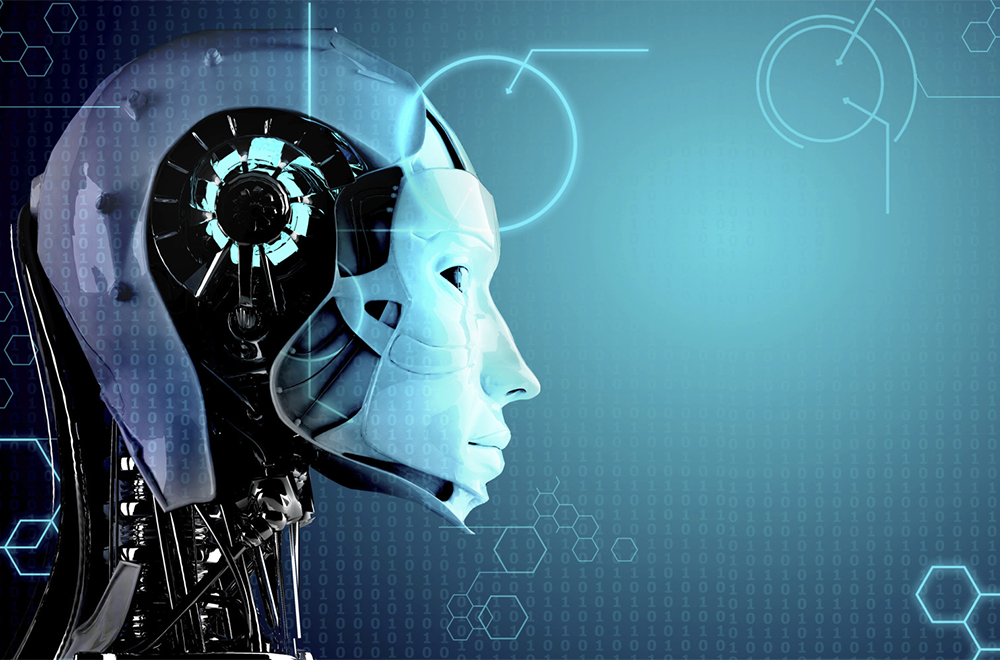by Taedzwa Chikono
Artificial intelligence (AI) has the potential to revolutionize many industries and bring about significant technological advancements. However, it is also true that AI poses a threat to certain jobs and can lead to job redundancy in some sectors. In this article, we will explore some examples of how AI is becoming a security threat to jobs and discuss what African governments can do to address this issue.
One example of how AI is threatening jobs is through automation. In industries such as manufacturing and transportation, AI-powered machines and software can perform tasks more efficiently and accurately than humans. This can lead to the displacement of human workers, as companies may opt for machines that require less maintenance and training. For example, self-driving vehicles and drones are being developed for use in transportation and delivery, which could potentially replace human drivers and delivery personnel.
Another way in which AI is threatening jobs is through the use of algorithms to analyze and process data. In the financial industry, for instance, AI-powered software can analyze vast amounts of data to identify patterns and trends, which can be used to make investment decisions or to detect fraudulent activity. This can lead to the replacement of human analysts and financial advisors, as the algorithms may be able to perform these tasks more quickly and accurately.
AI is also being used in the customer service industry, where chatbots and virtual assistants are being developed to handle customer inquiries and complaints. While these AI systems may be able to provide basic information and assistance, they may not be able to fully replace human customer service representatives, who are able to provide more personalized and empathetic responses. However, it is possible that the use of AI in customer service could lead to the reduction of human staff in certain roles.
There has been some discussion about the potential for AI to replace teachers in the education sector. With the development of AI-powered tutoring and learning systems, it is possible that students could be taught by virtual assistants or robots in the future. These systems could potentially provide personalized learning experiences and help students to learn at their own pace.
However, it is important to note that the ability of AI to fully replace human teachers is currently limited. While AI systems may be able to provide basic instruction and feedback, they may not be able to provide the same level of personalized support, guidance, and motivation that a human teacher can. Additionally, AI systems may not be able to adapt to the unique needs and learning styles of each student in the same way that a human teacher can.
It is also worth considering the potential negative impacts of relying too heavily on AI in education. For example, the use of AI in teaching could lead to a reduction in the number of human teachers needed, which could have negative consequences for employment and the education system as a whole. Additionally, the use of AI in education may also raise concerns about the quality of education being provided, as AI systems may not be able to fully replicate the human experience of learning and teaching.
Given these considerations, it is likely that AI will play a role in the education sector in the future, but it is unlikely to fully replace human teachers. Instead, it is more likely that AI will be used as a supplementary tool to enhance and support the work of human teachers. It will be important for educational institutions and policymakers to consider the ethical implications of using AI in education and to ensure that the benefits of AI are balanced with the need to preserve the human element of teaching.
News readers, or journalists who present news on television or radio, are another type of job that may be affected by AI. With the advancement of AI-powered text-to-speech systems, it is possible that news could be presented by virtual assistants or robots in the future. These systems may be able to read out news stories in a clear and consistent manner, without the need for human news readers.
While it is unlikely that AI will completely replace human news readers in the near future, it is possible that the use of AI in this role could lead to a reduction in the number of human news readers needed. This could be particularly true in the case of smaller news organizations, which may not have the resources to hire a large number of human news readers.
In addition to the potential for job redundancy, the use of AI in the news industry could also raise concerns about the objectivity and impartiality of the news being presented. While AI systems may be able to present the facts of a story accurately, they may not be able to provide the same level of analysis and perspective as a human news reader.
Given these potential impacts, it is important for news organizations to consider the ethical implications of using AI in the news industry. This could involve establishing guidelines for the use of AI in the presentation of news and ensuring that human news readers are still involved in the editorial process.
In conclusion, while the use of AI in the news industry may bring about some efficiencies, it is also likely to pose a threat to the job security of human news readers. News organizations should carefully consider the ethical implications of using AI in this role and work to ensure that the benefits of AI are balanced with the need to preserve the integrity of the news.
In addition to these examples, AI is being developed for use in a wide range of other industries, including healthcare, education, and retail. While AI has the potential to bring about significant improvements in these sectors, it is also likely to lead to job redundancy in certain roles.
Given the potential impact of AI on employment, it is important for African governments to consider how they can address this issue. One potential approach is to invest in education and training programs that can help workers to acquire the skills needed to succeed in the AI-driven economy. This could include programs that teach coding and data analysis, as well as programs that focus on soft skills such as communication and problem-solving.
Another approach is for African governments to work with businesses to develop policies and initiatives that promote the responsible use of AI. This could include the establishment of guidelines for the ethical use of AI in the workplace, as well as the development of strategies to mitigate the impact of AI on employment.
In conclusion, AI has the potential to bring about significant advancements in many industries, but it also poses a threat to certain jobs. African governments can take steps to address this issue by investing in education and training programs and by working with businesses to promote the responsible use of AI. By taking these steps, African governments can help to ensure that the benefits of AI are shared widely and that workers are able to adapt to the changing economy.



